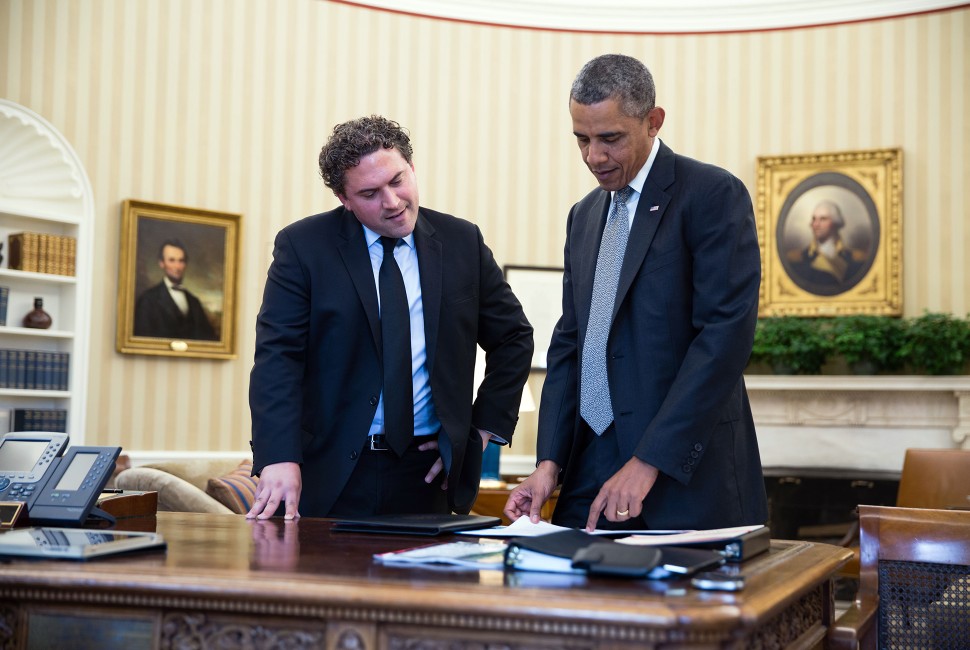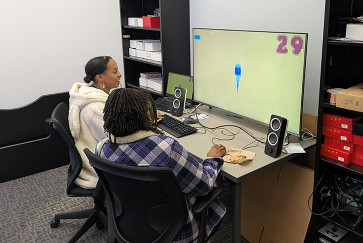Northwestern alumnus Cody Keenan returned to campus this fall to teach a class and share his worldly wisdom as a professional speechwriter who has written or edited more than 2,000 speeches for his boss, former President Barack Obama.
Of those many speeches, Keenan’s favorite goes back to March 2015 when Obama spoke in Selma, Alabama, marking 50 years since "Bloody Sunday" in 1965 when thousands of Americans were brutally assaulted on a march to the state capital in support of voting rights for African Americans.
“‘We hold these truths to be self-evident, that all men are created equal.’ These are not just words,” Obama declared. “They’re a living thing, a call to action, a roadmap for citizenship and an insistence in the capacity of free men and women to shape our own destiny.”
Students examine this critical oration as part of Keenan’s “Speechwriting” class, offered through the political science department in the Weinberg College of Arts and Sciences.
A 2002 graduate of Weinberg College, Keenan returned to campus to teach his first class to college students and impart key lessons that one learns only through doing. There is no great writing, he notes in the syllabus, only great rewriting.
“I remember the Selma speech was our purest collaboration,” he said. “We were lucky enough to have a snow day just before the event. So we sat inside the White House all day, going back and forth on draft after draft. It was just one of those times when each version got better than the last.”
At the start of one recent class, Keenan walked into class fresh off a plane from Washington, D.C., where he still lives and works with Obama as a speechwriter, and as collaborator on an upcoming book. The day’s assignment was to write a eulogy for a well-known — and still living — person. It was a dark week for a number of A-list celebrities, he joked.
Whether a eulogy, persuasive argument or humorous toast, Keenan describes every great speech as a well-crafted story that hits the crowd on an emotional level. To be a successful speechwriter is to help leaders in any industry move audiences, win the battle of ideas and, ultimately, change the world.
“I’m spending more time reading my work aloud to make sure it sounds good to the ear.” — Student Brianna Willis
Suited to a class that dissects every aspect of speechwriting, from inspiration and research to fact-checking and final flourish, Keenan assigns a wide range of essential speeches to illuminate leaders of every era and political stripe.
Required reading and viewing includes “Ain’t I a Woman,” delivered by human rights advocate Sojourner Truth at an Ohio convention in 1851. Senator Robert F. Kennedy invoked his favorite poet, Aeschylus, during a presidential campaign stop in Indianapolis on April 4, 1968, to tell the crowd of Martin Luther King Jr.’s assassination. And three days after the September 11 attacks, President George W. Bush stood atop a pile of rubble to speak through a bullhorn to Ground Zero rescue workers at the World Trade Center site.
In a workshop setting, with tables facing each other, students develop a more collaborative creative process than most are used to.
“I’m now showing my drafts to other writers to break my solitary writing habits,” said senior Brianna Willis.
Since high school, Willis has planned to become a political speechwriter. The Weinberg senior has put a lot of effort toward that goal, including political science classes, participation on the speech team and her work at a speechwriting firm. But Keenan’s class has given her a bump she didn’t realize she needed.
“I’m spending more time reading my work aloud to make sure it sounds good to the ear,” she said.
For Keenan, his first teaching stint has been a joy.
“This is the only place I’d fly to once a week to teach a class,” he said. “And you’d have to do a lot to keep me from coming back next fall.”


